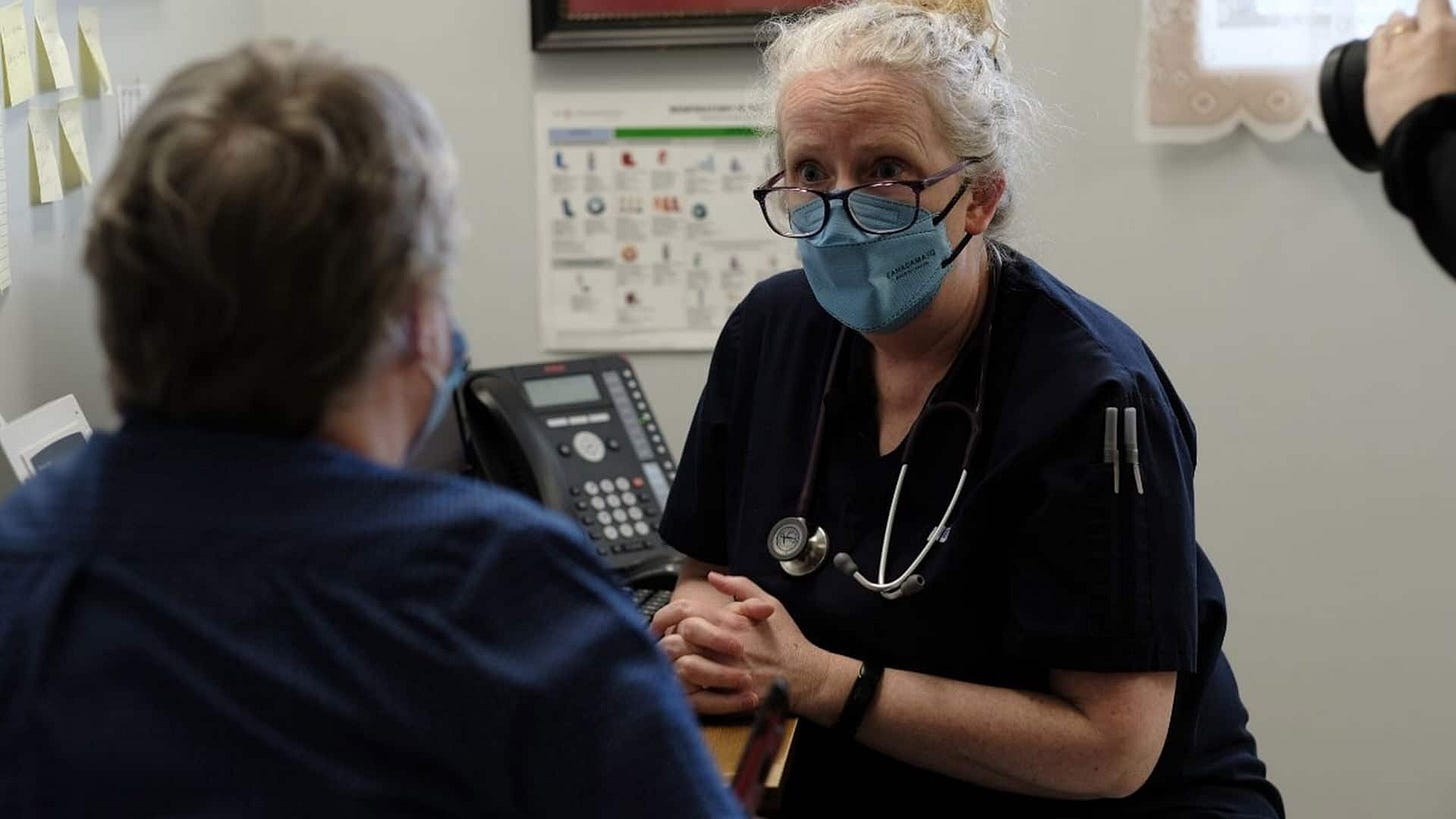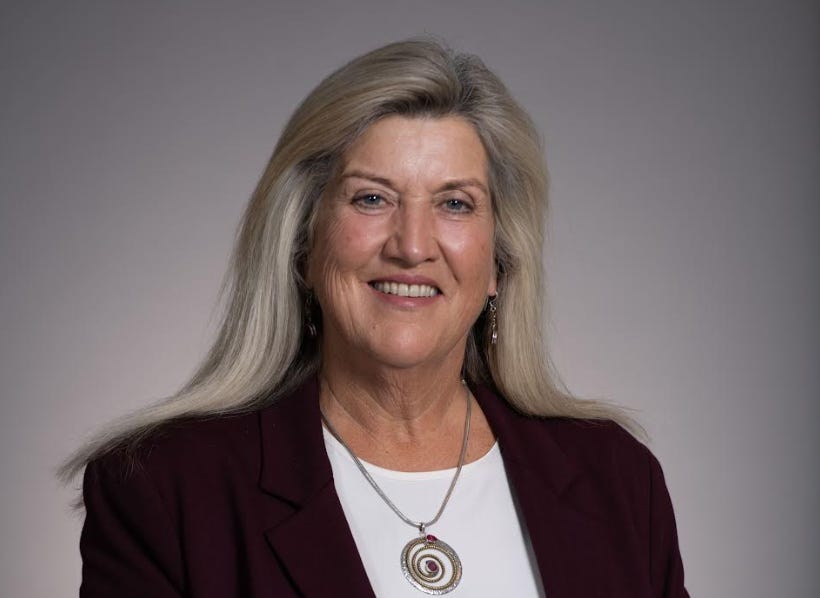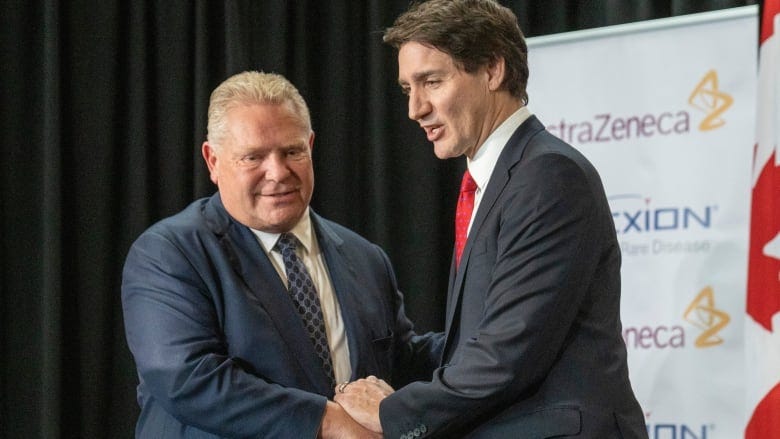You’re reading the web version of The Weekly Dose, our newsletter on Canadian health care and medical news. Sign up to get it next week.
Hello, Healthwatchers! 👋
Welcome back to The Weekly Dose.
Today we have a broad mix of issues. Here's what's on the docket this week:
Ontario family doctors are planning their exit-strategies
Amidst the primary care crisis, Ontario family physicians convened online last week to discuss potential career shifts away from medicine.
Why it's important: The state of family medicine in Ontario is indeed dire, as doctors grapple with unsustainable working conditions due to inadequate funding and excessive administrative burden.
The Ontario Union of Family Physicians, representing over 1,700 doctors, held a meeting which shone a harsh light on the unsustainable nature of family practice in the province. The issue is exacerbated by perceived inaction from the health ministry, with upcoming negotiations on physician services agreements sparking little optimism for substantive change. As primary care stands as the cornerstone of the healthcare system, this movement among family docs not only reflects their personal plight, but signals the potential for a further collapse in both patient care quality and accessibility. With the OMA and Ministry of Health at a crucial juncture, the future of family medicine in Ontario hangs in the balance.
Read more…
Canada’s new Dental Care Program has dentists on-edge
Dentists across Canada are voicing well-founded apprehensions about the recently announced $13-billion Canadian Dental Care Program.
Why it's important: Dr. Heather Carr, President of the Canadian Dental Association, wrote us a nuanced critique of the Dental Program’s rollout. If any readers have a hand in the program’s implementation, her piece is worth a very close read.
The new dental program marks a pivotal moment for oral health care in Canada, aiming to enhance access for vulnerable people. It’s an ambitious policy move that’s worthy of celebration and praise. However, key concerns of dentists remain unaddressed, including the specifics of compensation and added administrative burden. The initial phase of the program, with its limited coverage and lack of clarity around costs to patients, has dentists feeling more than a bit wary. Carr argues that the program’s success hinges on clear communication and the preservation of patient choice in dental care providers. As Canada embarks on this ambitious initiative, the dental community's input will be crucial in making sure that the Canadian Dental Care Program fulfills its promise without unintended consequences.
Read more…
Quebec waitlists for ortho surgery have doubled in four years
Orthopedic surgery waitlists in Quebec have alarmingly doubled in four years, with patients facing prolonged periods of disability.
Why it's important: This surge in wait times not only reflects the growing demand for these procedures but also exposes the health system's struggle to balance urgent cancer surgeries with elective, but still critical, operations.
A grim picture has emerged in Quebec: prolonged wait times are rendering patients housebound or wheelchair-bound, compromising their quality of life and surgical outcomes. Despite some progress in addressing cancer surgery backlogs, the orthopedic surgery delays are an increasingly critical resource allocation issue. Nearly half of waitlisted patients are now waiting over six months for hip and knee replacements, a proportion that hovered around 20% four years ago. Health Minister Christian Dubé's efforts to prioritize cancer surgery are commendable, but the sharp increase in orthopedic waitlists demands some immediate attention to prevent further degradation of health outcomes for Quebec’s aging population.
Read more…
The Breaking Point: A family physician's farewell to medicine
Dr. Ferrukh Faruqui shares a heartwrenching and vulnerable narrative outlining her reasons for leaving family medicine, pointing to a broader crisis within the profession that could lead to a significant exodus of family doctors from practice (see story #1).
Why it's important: Dr. Faruqui's story gives tangible voice to issues we’re beginning to hear about a lot in family medicine; unsustainable workloads, financial strain, and the emotional toll of practicing under such conditions. It’s also just a good read.
There’s a troubling trend of dissatisfaction among family doctors, who are grappling with the pressures of overburdened health systems. Her experience of burnout and the decision to leave practice behind highlight the very urgent need for systemic reforms to address the working conditions and financial viability of family medicine across the country. As the attrition rate of family doctors continues to rise, leaving millions of Canadians without primary care, this issue is going to require focused attention from governments as well as changes that are both substantive and meaningful to prevent further erosion of this most foundational aspect of healthcare.
Read more…
Ontario healthcare gets a 3.1 billion dollar boost
A landmark deal between Prime Minister Justin Trudeau and Doug Ford allocates $3.1 billion to bolster Ontario's health care system, promising to hire more health workers and improve primary care.
Why it's important: The new accord aims to address critical issues like staffing woes and the shortage of family doctors. The federal investment is a key step toward strengthening Ontario’s health infrastructure.
Some of the deal’s notable aspects are the focus on expansion of primary care teams and increasing medical education spots. The infusion of funds is expected to alleviate some of the pressures facing the province's health system, particularly the severe staffing shortages. By creating more primary healthcare teams and enhancing digital infrastructure, the agreement aims to improve both healthcare accessibility and efficiency. All of this said, while this is surely a ‘good news story’ it will likely be years before many of the deal’s remedies are tangibly felt by the public. The Ontario government’s critics will be watching closely to see how the funds are deployed and what the impact is on reducing wait times and improving healthcare in the province.
Read more…
As Pharmacare deadline looms, NDP issues (another) ultimatum to the Liberals
Jagmeet Singh warns the minority Liberal government that its support hinges on meeting the March 1st deadline for pharmacare legislation.
Why it's important: At face value, the standoff reminds us of the fragility of the Liberals’ position, but it could just be mere posturing.
Singh's recent statements appear designed to put pressure on the federal government to deliver on its pharmacare promise. However, with the NDP not ruling out support on future confidence votes despite policy disagreements, and the BQ also having the capacity to enable the government’s survival in a confidence vote, it’s quite unclear how much teeth, if any, this latest ultimatum actually has. What is my gut telling me? Sometimes, just for fun, I do like to make predictions. So I will. I believe we’ll soon see an end to the Liberal–NDP confidence and supply agreement, but I also think the NDP will continue to lend the government its support outside the bounds of a formal agreement between the two parties. If I’m wrong, I’ll eat my words.
Read more…
As we draw today’s edition to a close, I'm heartened by the vibrant participation and insightful perspectives shared with us by our community of readers—we’ve had some really good ones these past few weeks. Your perspectives are truly enriching to both our platform and to informing my own understanding of the country’s ongoing healthcare issues.
Let's keep the fun going—please, always feel free to share your thoughts, your expertise, and your stories. After all, we're not just discussing healthcare, we're helping to shape its future.
Until our paths cross again, let's stay connected and curious. Have a great week!
Yours in health,
Nick Tsergas
National Health News Editor
Canada Healthwatch
[email protected] | canadahealthwatch.ca





